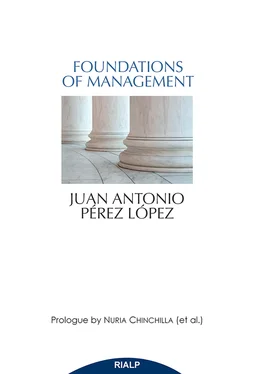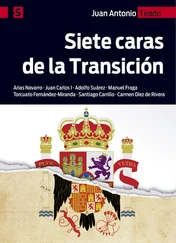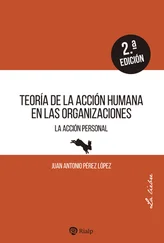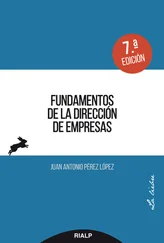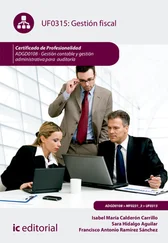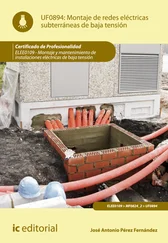What does Pérez López’s theory contribute to human organizations?
A November 2013 report by the World Economic Forum points to “the loss of values in leadership” as one of 10 dangerous tendencies on a global level. Immediately afterward, the report authors ask: “How can leaders develop a global and integral vision, uncontaminated by their own interests?” In the interviews on which the report is based, a majority of interviewees indicate their lack of trust in leaders. It is precisely this crisis of confidence that threatens the legitimacy of the institutions of the capitalist system.
The analysis of these data, to which we might add numerous other interviews indicating a similar trend, shows that mistrust arises when someone suspects leaders of acting only in their own interests or interests that fail to take into account the people affected by the leaders’ decisions.
Pérez López’s theory provides the keys needed to develop leadership that inspires confidence, leadership that emanates from a person capable of combining self-interest with the satisfaction of the needs of others. In contrast, the opportunistic behavior of people who work solely to their own advantage generates distrust and creates uncertainty all around them. If such people also enjoy positions of power, the negative impact on trust-based relationships is even greater.
Pérez López was able to discern that trust and mistrust do not depend merely on the structures, systems, cultures, and/or shared values crucial to any organization. Trust arises, grows, diminishes or is lost through the interactions between two individuals, hinging on the motives, intentions, and aims of the decision-maker.
Pérez López shows that any action implies a process that necessarily involves three elements:
1. The interaction (action-reaction) between the agent and the person affected by the agent’s decision.
2. The agent, who—as we shall see further on—learns positive or negative lessons, depending on the action’s consistency.
3. The person affected by the decision, who also learns positive or negative lessons.
Due to the dynamism of the action, which entails the interrelation of these three elements, the decision itself yields consequences not only for the person to whom the action is directed but also for the decision-maker. This impact on the people interacting leads to lessons being learned that modify their approaches to future decisions, both personal and professional, according to the experience being acquired. This is why the static paradigm—which acknowledges a very broad but closed array of definite and limited statements, of the type “if AX, then BY”—fails to do justice to the reality of business.
There is a before and an after in any relationship’s quality, which depends on the intentions—the kinds of motives—that drive a person to action.
1. With extrinsic motives, we seek some benefit from the external environment. The most appropriate verbs here are have, obtain, achieve, and acquire (incentives, compensation, awards, status, recognition, or prestige).
2. With intrinsic motives, we seek to learn or to acquire operational knowledge (skills, techniques, etc.). The verbs here are know, learn, enjoy, and overcome a challenge.
3. With transcendent motives, we seek the usefulness or benefit the action will have for other people. The verb here is serve: to satisfy people’s real needs—whether material needs, the need for knowledge, or the need for human development.
The first type of motive is common to all decision-making theories. The second is also frequently found under the label “intrinsic motivation,” although Pérez López has a broader meaning in mind. The third type is dealt with occasionally as altruism: “other-motivation,” with a meaning very different from the one Pérez López gave it. Faced with an isolated, static notion of each of these motives, Pérez López provides a dynamic explanation of the workings among all three, as well as the necessary conditions for their transformation into an “inner strength” that leads to decision-making.
Pérez López helps us understand that any business decision (acquiring resources, production, consumption, etc.) entails an implicit ethical meaning. He was concerned with the development of human thought as an instrument for solving real problems: problems that require thought, analysis, and awareness of context, so as to identify alternatives that will be effective as well as just, thus opening up an immense panorama for business ethics.
For example, managers motivated solely by the money they will make by selling a product, by the challenge of that sale, and/or by what they can learn, with no concern for the customers’ real needs, have not progressed beyond self-interest. This way of acting, whether managers realize it or not, will influence them in their future decisions and in the future relationships they will—or will not—be able to build with particular customers and with other people.
Real problems—the kind that arise in any company’s day-to-day operations—are not only matters of knowledge, of how to do things or how to maintain the capacity to do them, but are much deeper. It is relatively easy for a manager to find out whether an employee is doing his or her job efficiently but still be unsure of the employee’s trustworthiness. An employee might have the same sort of doubt about a supervisor. How can we know whether somebody is trustworthy or not?
Pérez López would respond that a person can certainly become increasingly motivated to cooperate in carrying out an action plan due to desirable economic results. But at the same time trust may be destroyed—and with it any opportunities to pursue that relationship in the future—if that person discovers that the decision-maker is concerned only with his or her own advantage.
Trustworthiness is achieved when people are driven by transcendent motives. Trust is therefore a “personal” matter. The relationship of trust is established when the intentions of those involved in the interaction seek a mutual benefit, if this is confirmed over time. Without this premise, trust is lost and this is an extremely serious consequence since the market, by itself, cannot entirely fulfill its own economic purpose. It requires relations of trust and solidarity but these are external factors as far as the economy is concerned, since they are not bought or sold. Trust is therefore the main asset in any human organization.
One essential contribution of Pérez López’s theory is the analysis of action that occurs within the individual himself or herself. Pérez López indicates that, in any interaction, two levels of learning arise simultaneously:
• Operational learning: the acquisition of knowledge, skills, competencies, and abilities
• Evaluative learning: the value we confer upon another person, which may be positive or negative, depending on whether we consider that person as:
– A value in himself or herself, and thus we treat that person with respect and dignity, or
– An instrument to be used, and thus we subject that person to manipulation, deception or harm in order to obtain some advantage.
How positive evaluative knowledge be gained: that is, how can an evaluative capacity be developed? Pérez López affirmed that it is essential for each person to learn to evaluate his or her actions a priori, so that his or her decisions become more and more correct, and to treat other people according to their real value. To do this, the following criteria or motives must be taken into account:
• Effectiveness: the extrinsic results desired
• Efficiency: the intrinsic impact the decision will have on the decision-maker, and
• Consistency: the impact the decision will have on the people affected
Читать дальше
